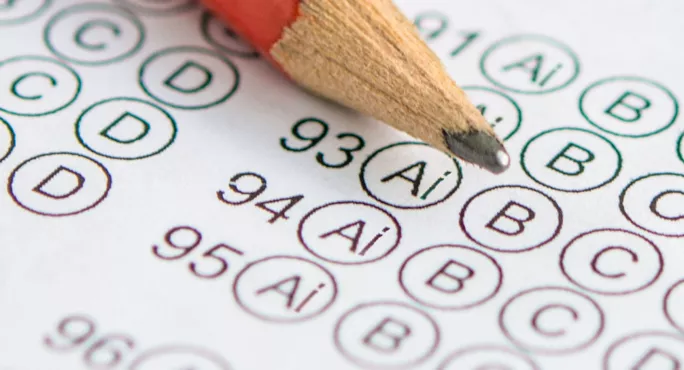How AI could transform assessment

The reform of Scottish education is continuing apace with, it seems, a new document or consultation hitting inboxes on a monthly basis.
As much as the next teacher, I am desperate to see change come to organisations involved, such as the Scottish Qualifications Authority and Education Scotland, and to the assessments by which our pupils are judged. However, I am concerned that quick fixes are going to be introduced that have not had the necessary forethought and have not taken account of advances in technology, which may previously have been thought to be in the realm of science fiction.
Although no technophile, I do, for example, recognise the potential that online adaptive testing may have for the way in which we assess pupils. Many organisations, including the civil service, use such tests - where the questioning increases in difficulty as participants answer questions correctly - in their vetting procedures for new staff. It is not hard to see how such testing could be used across a range of subject assessments, especially if we also use multiple-choice questioning more effectively. With some thought, we might introduce more nuance into answers and test both the knowledge and analytical capabilities of the participant.
- Related: AI may unlock doors, but teachers hold the keys
- Report: Teacher assessment ‘impossible’ amid ChatGPT rise
- AI: Why the rise of ChatGPT should liberate education, not scare it
- Assessment: How teachers (and SQA examiners) can embrace ChatGPT
- Interview: ‘Teachers are the best curricula makers in the room’
So far, so basic, in that the technology already exists. However, a recent paper sent by a colleague shows that the predicted growth in artificial intelligence (AI) could also open up assessment of social skills in ways that few could be aware of.
Phase 3 of the Hayward qualifications and assessment review in Scotland has put forward the idea of a three-component system. One of these components is a project-based approach that would give employers a better idea of how our pupils engage in skills, such as teamwork and problem solving - these, we are told over and over again, are the lifeblood of workers in the 21st century.
As any teacher knows, however, measuring such skills is extremely problematic. How, for example, can we tell who in a group is showing more leadership potential than anyone else? Easier perhaps if we only have one group to assess and a lot of time to watch them, but it is considerably more difficult when seven different groups in a class of 30 are working away on different projects at the same time.
The paper I mentioned, from Andrew Paterson and Niall Dolan, shows how AI - much maligned as a source of cheating within the education community - could provide an answer to such problems. AI technologies, with sensors inside common digital devices, can monitor physiological and environmental variables and process data “to understand such things as what and how we are communicating, how we are feeling, who we feel comfortable around, what activities we like doing, and what we are good at and not so good at”. Tracking the physical movements of pupils, for example, could give data on internal group dynamics that would be useful in both formative and summative assessment of individual skills.
Going further, the authors suggest that “AI-based assessment systems could reveal objective, detailed and quantitative and semi-quantitative information” to assess a range of skills, including creativity, collaboration, problem solving, curiosity, critical thinking, compassion and a host of others. In a less than exhaustive list, there are 28 characteristics listed that would be extremely difficult - if not impossible - for teachers in the classroom to analyse subjectively with any great degree of accuracy.
As a natural sceptic, I am surprised by how much I have found myself in agreement with the paper’s authors (although there are other aspects of education on which we do not agree). The future they envisage holds many opportunities that need to be critically evaluated and discussed.
Change driven by AI is inevitable, so we must not miss an important opportunity to shape them - and change the lives of our pupils and our future society for the better.
John Rutter is the headteacher at Inverness High School
Register with Tes and you can read two free articles every month plus you'll have access to our range of award-winning newsletters.
Keep reading with our special offer!
You’ve reached your limit of free articles this month.
- Unlimited access to all Tes magazine content
- Save your favourite articles and gift them to your colleagues
- Exclusive subscriber-only stories
- Over 200,000 archived articles
- Unlimited access to all Tes magazine content
- Save your favourite articles and gift them to your colleagues
- Exclusive subscriber-only stories
- Over 200,000 archived articles
topics in this article



